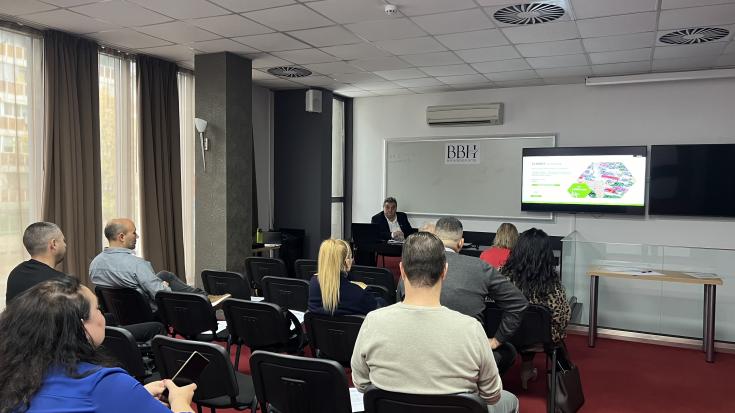Climate Action in Stara Zagora: A Collaborative Step Forward

The Stara Zagora Municipality team recently convened a meeting with key stakeholders to address climate change. Representatives from the NGO sector, business, and public administration, including the Regional Inspectorate for Environmental Protection, State Forestry, and the Fire Safety and Population Protection Directorate, participated in the discussion.
The meeting explored the impacts of climate change on various sectors, including biodiversity, human health, forests, water, agriculture, energy, urban environments, tourism, and transportation. National policies and strategic documents related to climate change were presented.
Participants identified prolonged drought, heatwaves, and forest fires as the most pressing climate threats. They emphasized the critical role of forests in water storage and carbon sequestration. Water management was highlighted as a particularly vulnerable sector, with potential consequences for the economy, biodiversity, and human life.
The importance of public awareness and preparedness for extreme weather events was underscored. Well-prepared communities are better equipped to minimize damage from such events.
The discussion centered on policies for biodiversity conservation, wildfire prevention, forest restoration, risk management in various sectors, critical infrastructure protection, and sustainable water management.
The national climate change strategy and its action plan were aligned with European policies. Funding opportunities through the Climate Change Adaptation Mission (CCAM), Cohesion Policy, Innovation and Modernization Fund, Recovery and Sustainability Plan (RSP), and Just Transition Fund were presented.
The meeting delved into key concepts like vulnerability, adaptation, and mitigation. Participants largely agreed that human activities and resource consumption contribute to climate change, leading to increased frequency and intensity of extreme weather events.